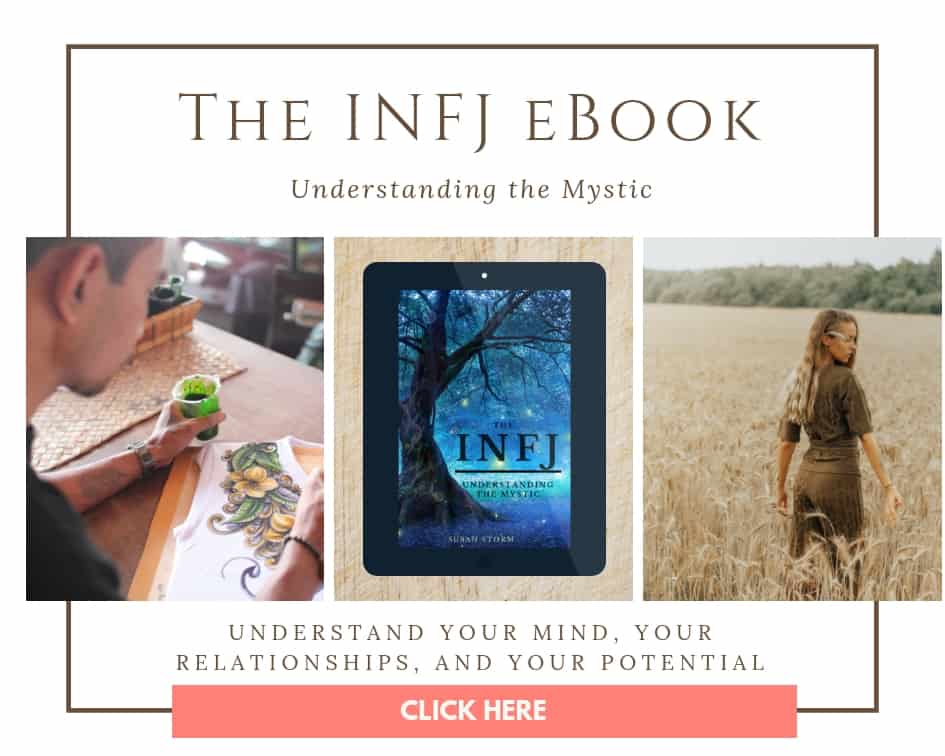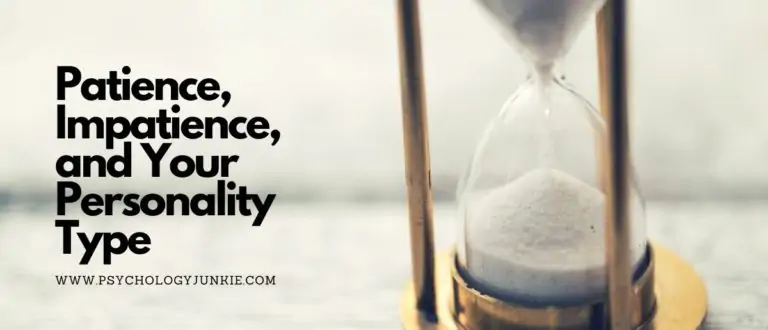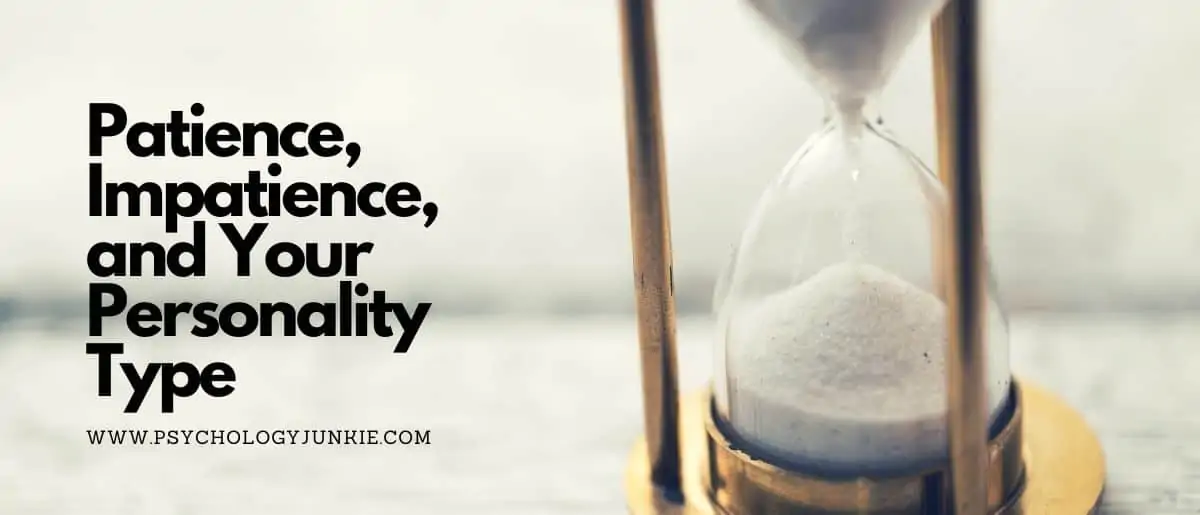10 Things INFJs Need in the Teenage Years
The teenage years are filled with change, curiosity, inspiration, and struggle. If you’re an INFJ personality type, chances are your teenage years were somewhat confusing as you wrestled to find your place in the world. Making up a very small percentage of the U.S. population (less than 1%), it’s easy for INFJs to feel like the veritable square pegs in round holes. In this article we’re going to explore some of the things they need during this transitional stage of life.
Not sure what your personality type is? Take our new personality questionnaire!

10 Things INFJs Need as Teenagers
-
Empathy
All children need empathy, but it seems especially vital to this type. When I surveyed INFJs to find out what they most craved in their teen years, “Empathy” came out on top by a huge margin. INFJs often feel misunderstood or pressured into a mold that doesn’t fit them. Hundreds of INFJs have emailed me with memories of being compared to more “normal” siblings or recounting histories of abuse and bullying by peers. Parents who will listen and try to get into their shoes and see things from their perspective are highly valued by them.
“When you show deep empathy towards others, their defensive energy goes down, and positive energy replaces it. That’s when you can get more creative in solving problems.”
– Stephen Covey
-
Attentiveness
Again, all children crave attentiveness, but in an age of smartphones and ever-mounting workloads, this can be a tough commodity to provide. Parents who put down their phone/computer/remote control and really look their INFJ in the eye and actively listen are deeply appreciated. (P.S. This is also something a teen of any type needs!)
“I wanted to be heard…not agreed with even…just heard.”
– Karyn, an INFJ
“I eventually stopped sharing what was on my mind/heart because it usually meant being ignored or ridiculed.”
– Natalia, an INFJ
“I just wanted to be listened to and heard and understood. I craved acceptance from others and when someone actually listened to my curiosities about myself and the world it felt amazing. I guess I most needed to know I could just be me.”
– Kim, an INFJ
-
Knowledge of Personality Type
INFJs feel a huge sense of relief when they discover their personality type. In fact, this is the type that most frequently pursues articles, books, and videos about personality type (based on my analytics). Understanding how their mind works can solve a lot of problems for INFJs, and introducing them to their type preferences can make a huge difference in their lives. Learning about their feeling preference can help them to understand why harmony is such an important factor in their lives. Learning about intuition can help them to own their insights and predictions rather than stifle them because they’re uncommon. You don’t have to be a type expert to explain some of the basics about INFJs, and doing so for a teen can help them to feel more at peace with who they are.
-
Artistic Encouragement/Exposure
INFJs tend to have a very strong creative streak. Many INFJs mention that they wished their parents had exposed them to more variety of artistic experiences like museums, concerts, libraries, classes, or even just provided art materials to use at home. Giving a young INFJ plenty of opportunities to experiment with art and view different varieties of creative expression can help them to find an avenue for their own creativity.
-
Solitude
As introverts, INFJs need a great deal of alone time to process their thoughts, musings, and reflections. This kind of time can be difficult to come by in the teen years when there are increasing social obligations and school takes a good 7+ hours of the day. It can make the difference between a good and a bad night if an INFJ teen is given a little free time to unwind at the end of a busy day at school. It means a lot when parents of INFJ teens respect their need for some solitude and quiet.
“INFJ children often need to escape from everyday life to be able to enter the recesses of their minds, reflect, and let their mind reveal various insights to them. They can be a little obsessive about their goals or interests. This is because Ni (Introverted Intuition) is a very singularly-focused function. Ni is intensely focused on one big idea or one main interest that connects everything else. One sure way to aggravate an INFJ child is to break into their meditative state with loud, sensory stimulation.”
– The INFJ – Understanding the Mystic
-
Guidance to Be the Best Version of Themselves
As teens, INFJs tend to struggle with “over-absorbing” the emotions of the people around them. They tend to take on other people’s troubles, and they often struggle with a push-and-pull between wanting to please their peers and wanting to find their own identity. It can be difficult for them to deal with peer-pressure, conflict, and finding their place in a world that is constantly shifting and changing. INFJs said they wished their parents had guided them, told them how to manage emotions safely, how to set up healthy boundaries so friends didn’t take advantage of them, and how to not say “No” to things that could hurt them in the long run.
“When I was a teenager I was very much concerned about being a chameleon in every situation and in every interaction I had. To the point that I had no idea who I was, I only knew the person I had to be for everyone else and that would change depending on who I was around. I would say that was my experience throughout my childhood as well. Always adapting to whatever energy everyone else put out. My entire thoughts were consumed with what everyone else thought about who I was, what I looked like, what I dressed like, and what I said and did. Years later into my 20s when I actually discovered I was an infj is when I started having realizations and awakenings about just how much I had let everyone else control my thoughts and my behavior my whole life. I am proud to say now that I have my own sense of individuality and now I have the confidence to let my own energy enter into a room without care of judgment or scrutiny.”
– Mariah, an INFJ
-
Encouragement to Go Against the Grain
INFJs tend to struggle with fitting in. They need to know that it’s okay to be unusual, to embrace their individuality, and to build up the strengths that they have, even if those aren’t “typical.” In the teenage years INFJs tend to struggle with how often people don’t listen to the implications they see. Other teens might laugh at their predictions or their favorite topics of conversation. INFJ teens would greatly benefit from hearing stories about great people who didn’t “fit in” when they were children.
-
Affection
While INFJs enjoy having a certain physical space “bubble,” they also enjoy getting regular hugs from parents and loved ones. These simple gestures help them to know they are loved and valued.
-
Validation
INFJ children and teens will have a lot of unusual thoughts, ideas, and feelings growing up. When they experience emotion they tend to need to process it externally in some way in order to figure it out. Because their method of dealing with emotions is through Extraverted Feeling (“Fe” for short) they tend to need some kind of externalized processing to figure it out. Whether they write their feelings down (journals are always good) or talk about them with you, it’s important to be a positive sounding board for them. They may not always understand why they’re feeling what they are until they’ve been able to get it out of their system. Then they try to analyze it. It’s important for them to have parents that don’t ridicule this process, or rationalize it away before they’ve had a chance to “talk it out”. Even if their feelings seem confusing or their insights seem unusual, it’s very reassuring to INFJs when parents validate and show open-mindedness to their thoughts and expressions.
-
Practice with Intuition
INFJs have a dominant mental process called Introverted Intuition (or “Ni” for short). This process causes them to look for underlying meanings, patterns, and symbols. They try to understand the future implications of what’s happening now and where certain events will lead in the future. Many families don’t nurture this gift because it seems “weird” to them. INFJs need opportunities to develop this part of themselves. Here are just a few simple ways young INFJs can develop their intuition:
- Encourage them to write down symbols, hunches, and insights that appear to them.
- Play strategic games where they have to anticipate their opponent’s moves ahead of time and plan for the future.
- Get them journals to record their thoughts in.
- Encourage them to write down their dreams or draw pictures from them.
- Ask them what they think the underlying motives of certain characters are in movies they’re watching or books they are in the process of reading.
What Are Your Thoughts?
Did you enjoy this article? Do you have any insights or experiences to share? Let us know in the comments!
Find out more about your personality type in our eBooks, Discovering You: Unlocking the Power of Personality Type, The INFJ – Understanding the Mystic, and The INFP – Understanding the Dreamer. You can also connect with me via Facebook, Instagram, or Twitter!
Other Articles You Might Enjoy:
5 Things That Every Stressed-Out INFJ Needs to Hear
10 Things that Excite the INFJ Personality Type
7 Things That INFJs Experience as Children
Get Your Free INFJ eBook
As a thank you for subscribing to my newsletter I will send you this free eBook PACKED with self-care tips, creativity hacks, and more! You'll also get a 3-day email course for understanding your personality type better!














Great article!
INFJ teen here! All of these are spot on, especially the attentiveness and personality type knowledge. i honestly thought I was crazy until I found out people felt the same way. Also, care. I won’t speak my mind if I think I’m annoying you or that you’ll think less of me/won’t like what I have to say if I tell the truth. Great article!
Great article!! I was in my 30’s when I finally became comfortable in my own skin. It was an ongoing process for so many years. I’m 51 now. I didn’t find out I was INFJ until I was 49. I’m a textbook INFJ & things make so much more sense now (why I operate the way I do).
I wish I had number 6
I read this and I feel kinda sad cuz my parents never did any of these and the kids in my family always bullied me for the way I was.
I wish I had all of these.
P.s I’m still a teen
One thing I struggled with as an INFJ is the idea of limiting myself. The compulsion to dive deep into everything is very strong. I think it is tied with intuition, needing more and more data from all the areas where we see connections and patterns but lack the knowledge to make sense of them. However, it seems to bring with it a lack of direction. That can be crippling early in life.
This is great, growing up, though I’m just eighteen. Secondary school wasn’t a fun place for me,yeah I was one of the best students in my school ,loved and trusted by everyone but I just didn’t understand why,I got home everyday wanting to be alone,my parents try talking to me,asking me if I was fine but I just wanted to be left alone,sometimes I stay indoor till the next morning,thinking about how my day went ,all activities that took place and my mistakes…my parents and friends knew me as a very secretiveand weird person,I hardly share my thoughts because I didn’t want to be misunderstood which happens till now,I have never had a best friend not because I think I can’t trust the other person but because I feel the person won’t understand me as much as I want to be understood.
Not until I found out about my personality and read more on it cause I’m known as a weird teenager,I think differently from every one,I always think about the adversity and future,what will happen if I do this,I love being indoor even if I wish I can go out to have fun,I love to visit the museum.
Thanks for the great article! I really appreciate knowing I’m not alone. My parents and siblings have never really understood what goes on on the inside of my brain. In that regard I felt very lonely. One thing I used to do (that I highly recommend!) back when school was not online, is walking home from school every day. I would be able to analyze and dissect anything that happened during school and unwind and reflect and get ready to shift my brain to being at home mode. It really helped especially when I was having trouble having friends for the first time in a while. It just helped me reorganize my brain to be prepared for the next day and for the rest of the day spent at home. It was like meditation of a sort.
As an INFJ teen I disagree with solitude. Yes, I DO need solitude, but way more than that I need socializing. Being alone for too long will cause me to completely lose touch with reality and myself, and Ni becomes unhealthy as Se is completely neglected
Como adolescente de INFJ de 16 años, me identifico con lo que dice en el artículo. Siempre he sentido que no encajaba con la gran mayoría de personas de mi generación, y que mis intereses son raros. Afortunadamente, he tenido unos padres que me han apoyado y entendido, pero sigo aprendiendo a aceptarme como soy